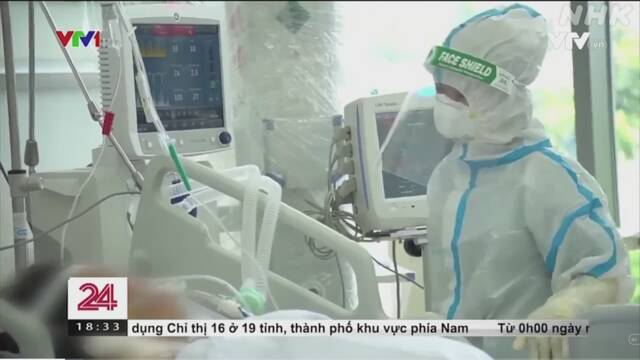In Southeast Asia, the spread of the new coronavirus continues, raising anxiety among the Japanese working there.
When the Japan Chamber of Commerce and Industry in Vietnam conducted a questionnaire to local Japanese companies, it was found that more than 60% of the companies are considering returning to Japan.
In Vietnam, the spread of the new coronavirus has continued since the end of April, and in Ho Chi Minh City in the south, where Japanese companies are concentrated, strict infection control measures such as prohibition of going out are being taken.
Under these circumstances, the Ho Chi Minh City Chamber of Commerce and Industry, which is made up of Japanese companies in Ho Chi Minh City, conducted an urgent questionnaire regarding the return of expatriates and their families to Japanese companies, and nearly half of them received responses from 475 companies. It was found that 66%, or 314 companies, are considering "temporary return" or "home return", which they do not plan to return to the site in the future.
Regarding the reason for returning to Japan, 50% of the expatriates and their families answered "to get a vaccine in Japan" and 30% said "to evacuate to Japan".
According to the questionnaire, regarding local medical facilities, "the sanitary environment and quality of service are not comparable to those in Japan, and there is psychological resistance to being forcibly taken by the authorities," or "I feel the danger of my child's life." Many voices of anxiety were received.
Kozo Watanashima, Chairman of the Ho Chi Minh City Chamber of Commerce and Industry, said, "Many people remained because they were afraid that the manufacturing base in Vietnam, which plays a part in the global supply chain, would be shut down. However, if the situation worsens, they will have to return to Japan. , The operations of manufacturers around the world will also be adversely affected. "
Spread of infection in Southeast Asia
In Southeast Asia, the infection of the highly infectious mutant virus "Delta strain" has spread, and the worst infection situation ever continues in each country.
Indonesia has the worst infection situation in Southeast Asia, with 30,000 to 50,000 new cases being confirmed every day, and the number of deaths per day continues to exceed 1,500. The cumulative death toll exceeded 100,000 on the 4th of March.
In Thailand, where the number of Japanese residents is about 80,000, which is the largest in Southeast Asia, the number of newly infected people per day exceeded 20,000 for the first time this month, and in principle, going out at night in and around the capital Bangkok. Strict regulations banning continue.
Furthermore, in Vietnam, which has been said to be an "honor student for infection control," more than 7,000 infected people have been confirmed every day since mid-July.
The reason why the infection situation is rapidly deteriorating in Southeast Asia is that the medical system is originally weak in addition to the strong infectivity of "Delta strain", and in Indonesia and Vietnam, "the medical field has already collapsed, Many seriously ill patients are left unattended. "
In addition, the low vaccination rate is also a big issue, and according to the site "Our World in Data" operated by researchers at Oxford University in the United Kingdom, as of the 4th of this month, those who have completed vaccination The ratio is only 8.0% in Indonesia, 5.9% in Thailand, and 0.8% in Vietnam.

